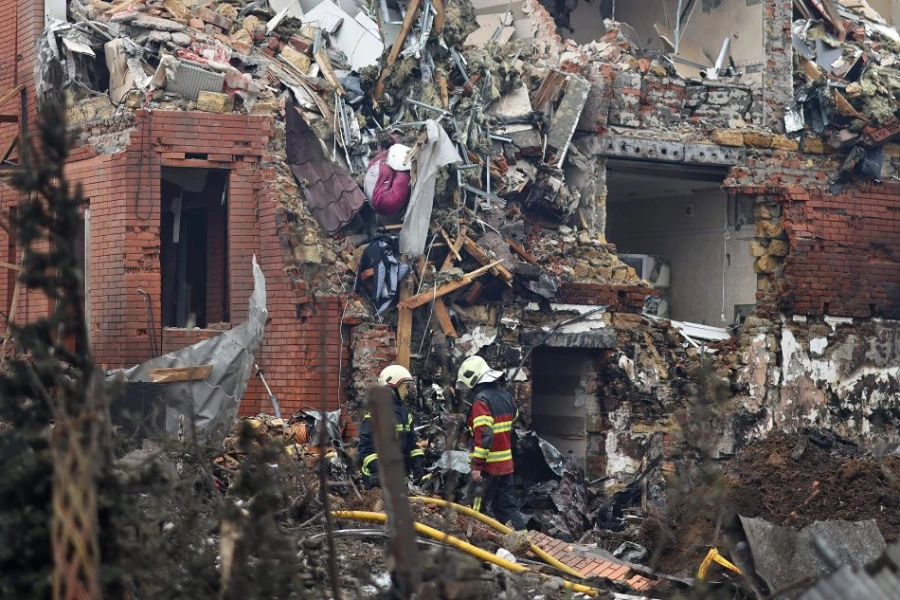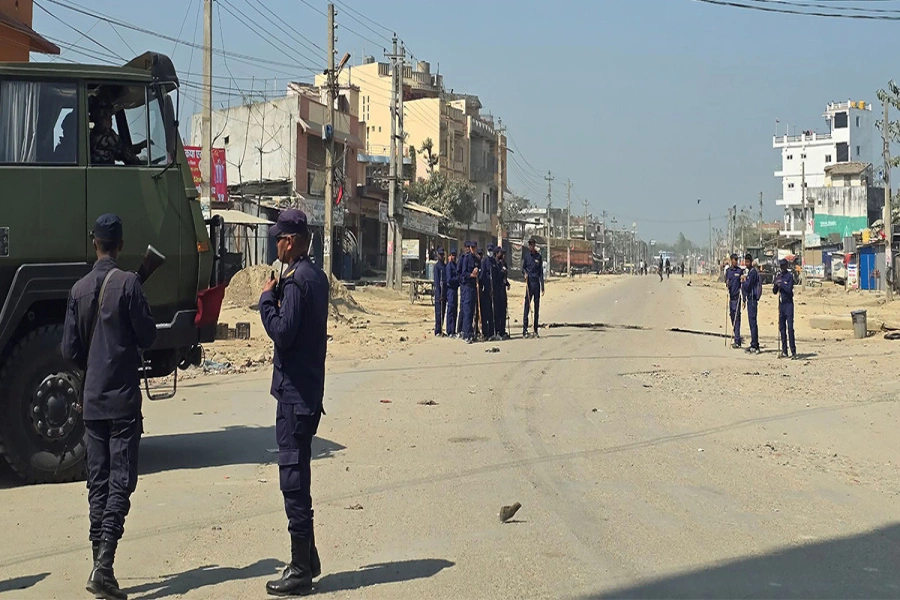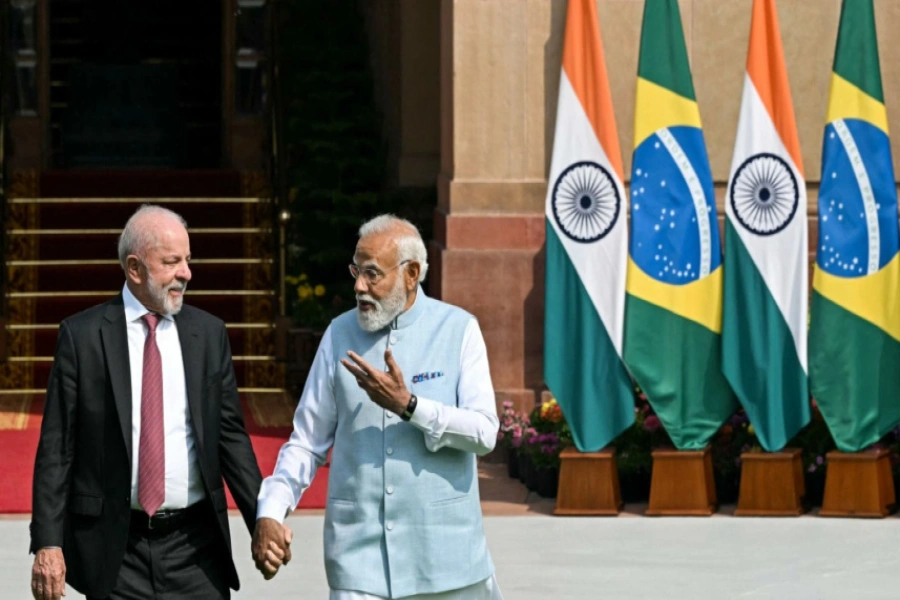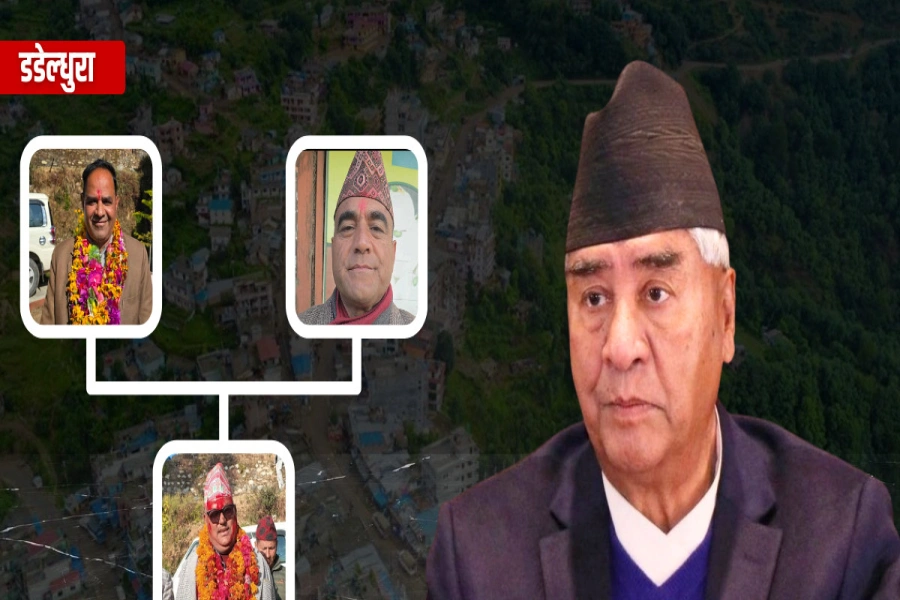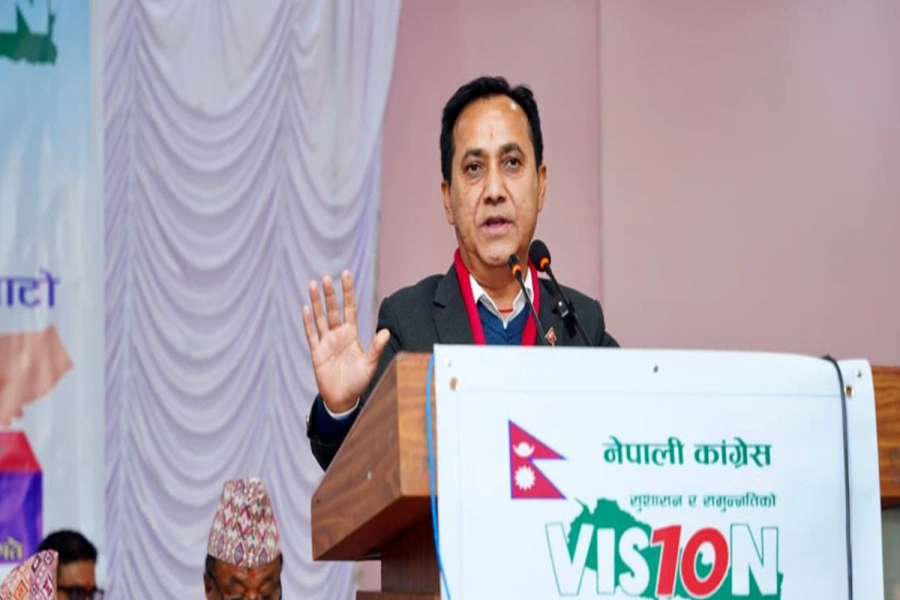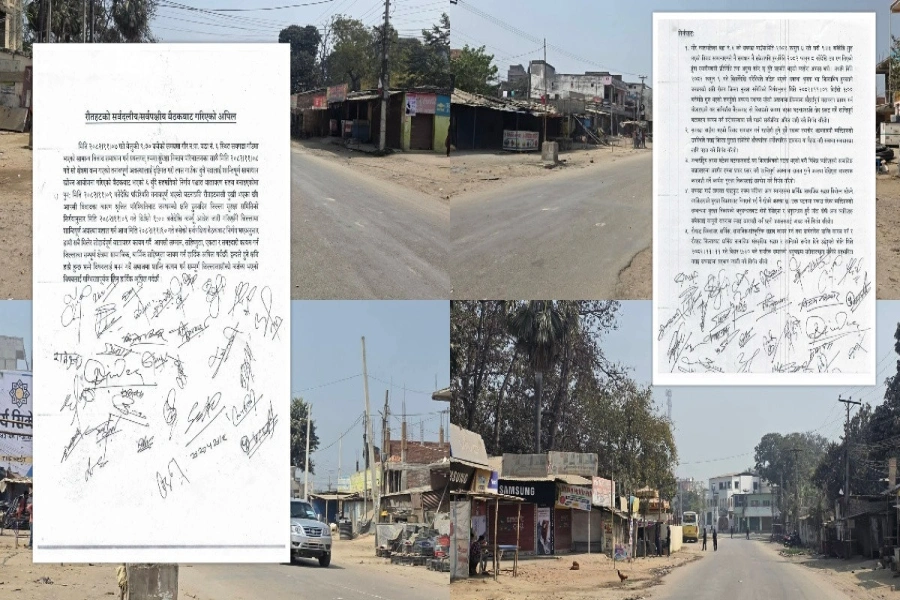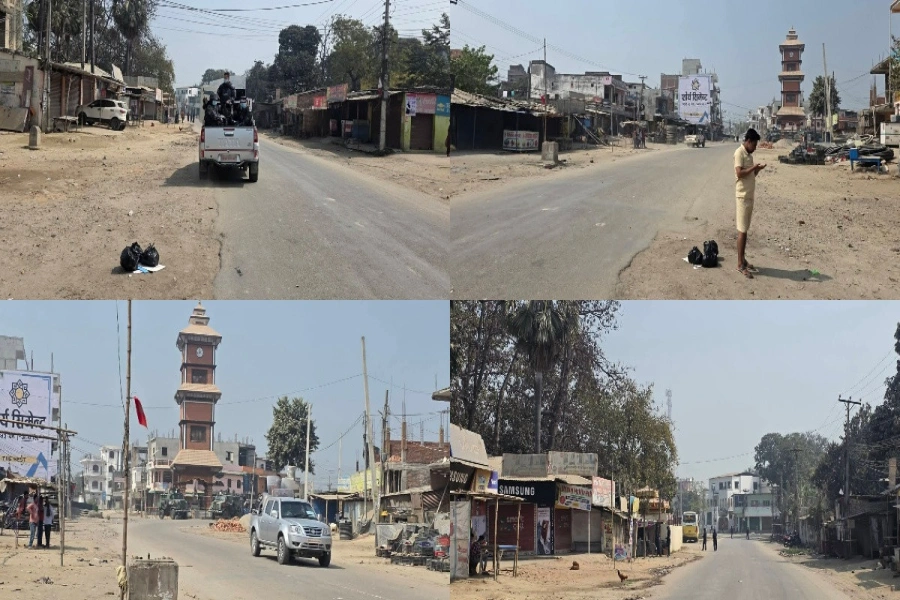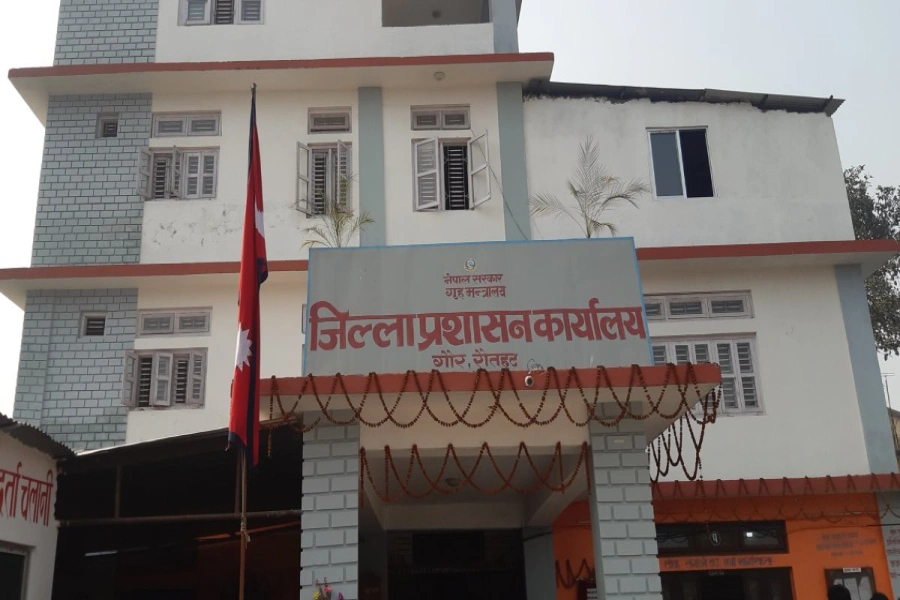When the Khil Raj government was formed all the so-called big parties were declaring that the election to the Constituent Assembly would be held at any cost in the first week of Ashad, 2070 (June, 2013). Now we know that it was nothing but a joke. At the moment, the Mohan Baidya-led Maoist is hell bent on obstructing the electoral process, primarily because it has been denied a role in the formation of the Regmi government. It is angry because its views are not being heard. In the meantime the four-party syndicate labeled the “high level mechanism” is trying to act as the real boss with the Regmi administration, which they have treated like an errand boy that should wait for order from the supervisors even to utter a word. This seems to go well with chairman Regmi. Noted for his taciturn temperament he seems happy to leave the talking to others so long as he can get by without any serious opposition. [break]
The present quagmire
Now the question is: Are we really going to hold election in Mangsir (November-December)? What is the guarantee that it will not be postponed again? Even if the elections are held in Mangsir, have we developed the mindset to solve the outstanding issues that caused the failure of the first Constituent Assembly? And how do we explain the often-heard comment by both the public and the political leaders (belonging to both the Maoist and non-Maoists parties) that Nepali nationalism is at its weakest since the country embarked on the path of democracy over 60 years ago? How did they arrive at this conclusion and is this the only point of agreement between them? And who do they think is responsible for this loss of national dignity and respect?

The second election of the CA is a way out of the present quagmire, but there is no guarantee of success. The issues that led to the failure of the CA-1 remain unresolved and could surface with equal intensity in the future. Similarly, political parties have not yet been able to strike a balance between national interest and party interest. For leaders of the big three political parties leading the government has become more or less the sole focus, irrespective of its implications on national sentiments. It is pathetic to hear leaders claiming to have fought for strengthening national sovereignty and the dignity of the Nepali people while openly proclaiming that the key to political power remains outside the country. This may have been the reality in the colonial era but to harp on the same theme and use it to exercise power is sad and pitiable. Furthermore, once in the government, the general tendency has been to misuse state power to enrich the party and cadres, even through outright loot and corruption. On this score our Maoist comrades have proved that they are way ahead of others.
A strong orientation towards corruption and external links to prove one’s political strength inside the country is the reality that is becoming a new norm in “new Nepal”, a term that is still being used, albeit less frequently (probably because of the vast gap between the implications of the phrase in form and content). The political rhetoric is always high-sounding and full of reference to the will and spirit of the people. And yet in reality the leadership is becoming increasingly corrupt and suffers from a dependency syndrome while the interests of the nation are ignored. If this trend continues it will erode the trust and confidence of the people in the political parties and will cut their strength to aggregate the interests of different groups in the society towards an amicable resolution. This is the symptom of a fragile state moving towards a failed state.
No one to blame
The way out from fragility to new strength and confidence is easy in theory, but difficult to implement. Basically it will require two new perspectives. First, a new appreciation of our geostrategic setting is necessary and it calls for consensus on the principle that all political parties would prioritize national interest over party interests. If this path was taken, CA-1 would not have failed to fulfill its tasks. From a national interest perspective the first task of the then CA was to promulgate a constitution but for most of the four years the political parties acted as if their primary job was to form a government led by respective party leaders. Naturally, a mentality that emphasized leadership of the government over the drafting of the constitution reflected the primacy of party interest over national interest. This confusion in priority led to a damaging struggle for power that became obvious when election for premiership was held for seventeen times without any result.
Second, it is now crucial for all the major political parties to reach a consensus on key issues of national interest as we deal with our neighbors and friends near and far. Both our neighbors, China and India, are aspiring superpowers aiming for an economy bigger than the US in the next 20-30 years. This will generate opportunities for Nepal to grow rapidly, provided we are able to gain their trust and confidence as an useful and trustworthy ally capable of conceptualizing and articulating its own strategic vision while remaining sensitive to their concerns. For this purpose irrespective of our disagreements in national politics we must forge a minimum level of unity on national issues vis-à-vis economy, security and the future vision of the country. However, this kind of consensus is nowhere in sight. The current strategy of most political parties seems focused on blaming each other for their own failure. This has made us look like fools, creating space for many unsolicited advices that reflects the interest of the advisor, rather than our own national interest.
Generally, it is safe to assume that our neighbors have global ambitions and want to see that our government is strong enough to remain sensitive to what they view as their vital concerns. However, when this becomes a difficult proposition because of continuous wrangling and backbiting among the political parties and confusion in government policies, internal political management as it relates to foreign policy can get out of control. This is likely to muddle the situation further and make it all the more difficult to move towards an acceptable situation.
It is always easy to blame outsiders for our problems and failure but that is an escapist strategy. Each country has its own national interests and its scope and content can change with our own performance and behavior. The important thing at the moment is for the political parties to articulate our national interests collectively in a manner that outlines our strategic focus with seriousness and dignity.
The writer is member of four man presidium of Rastriya Prajatantra Party
Police, court make conflicting statements on Rabi Lamichhane's...



